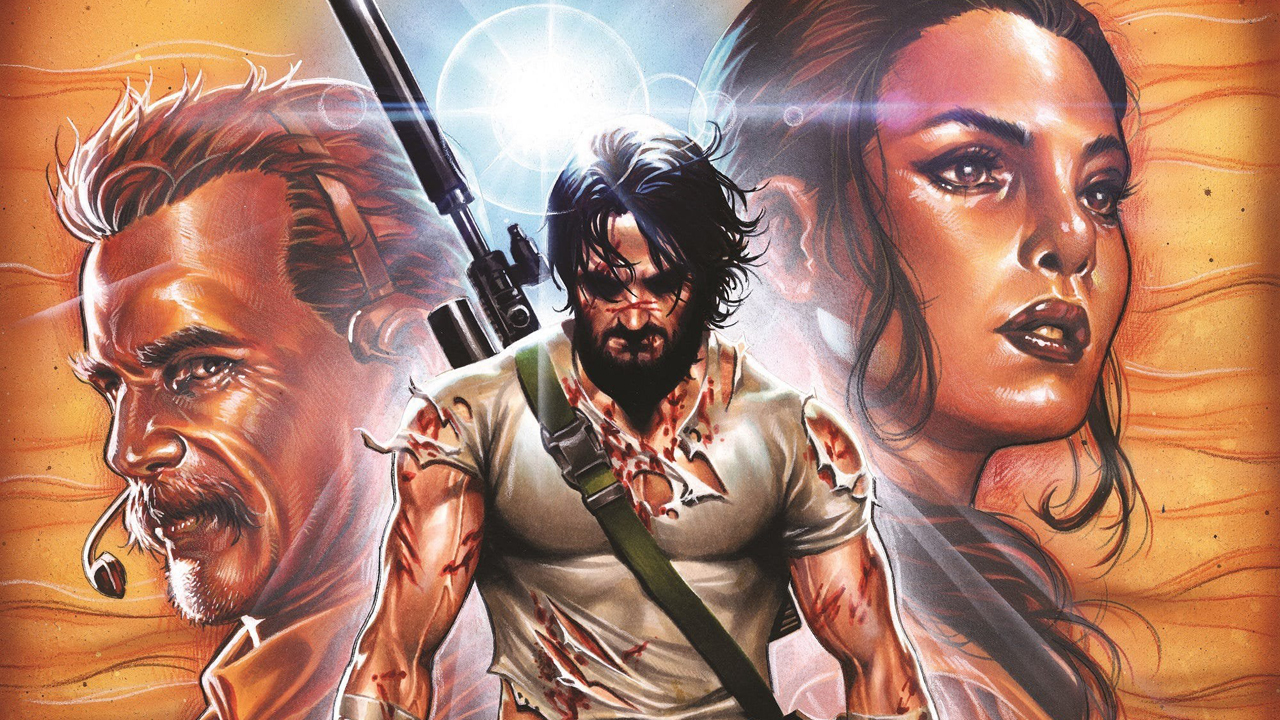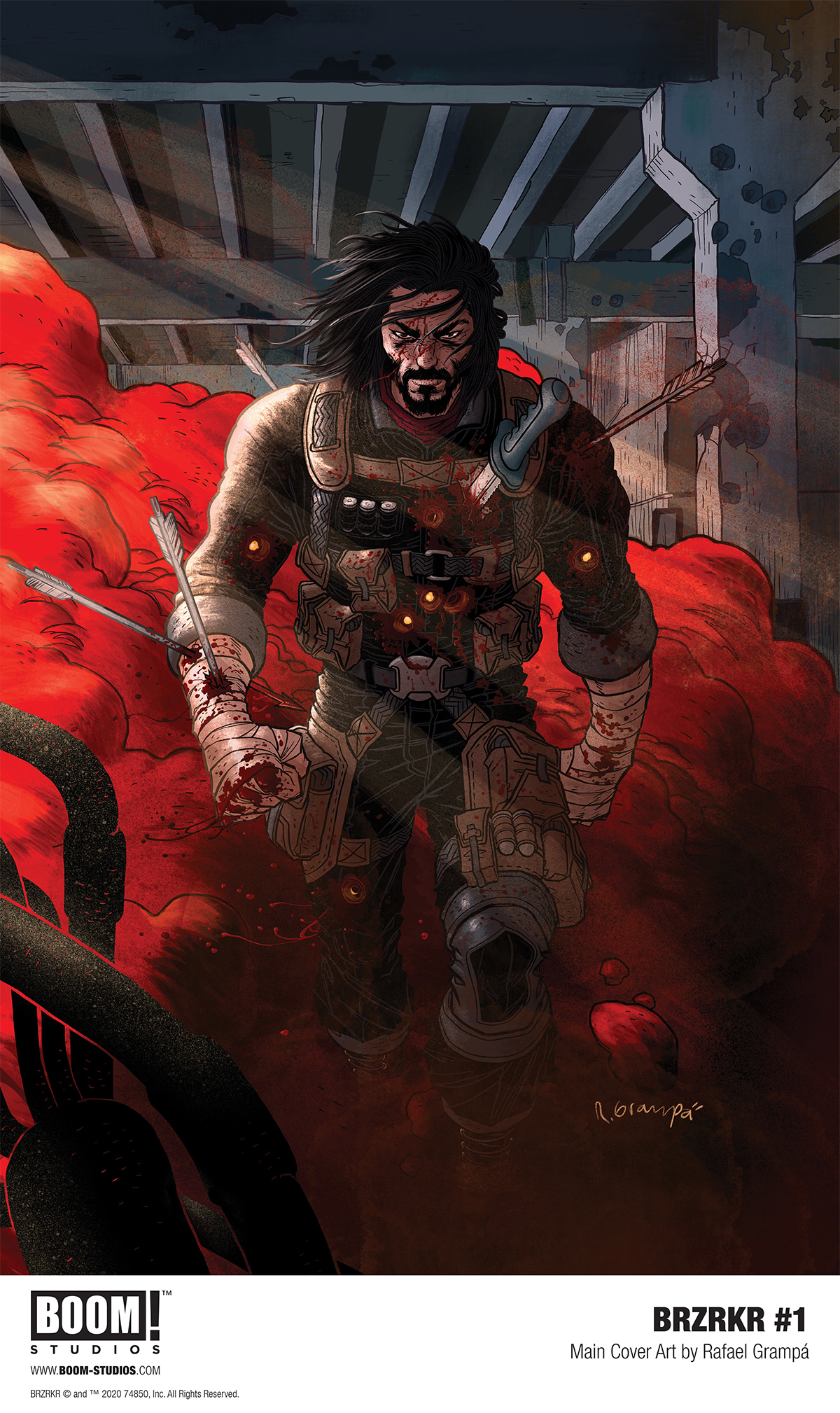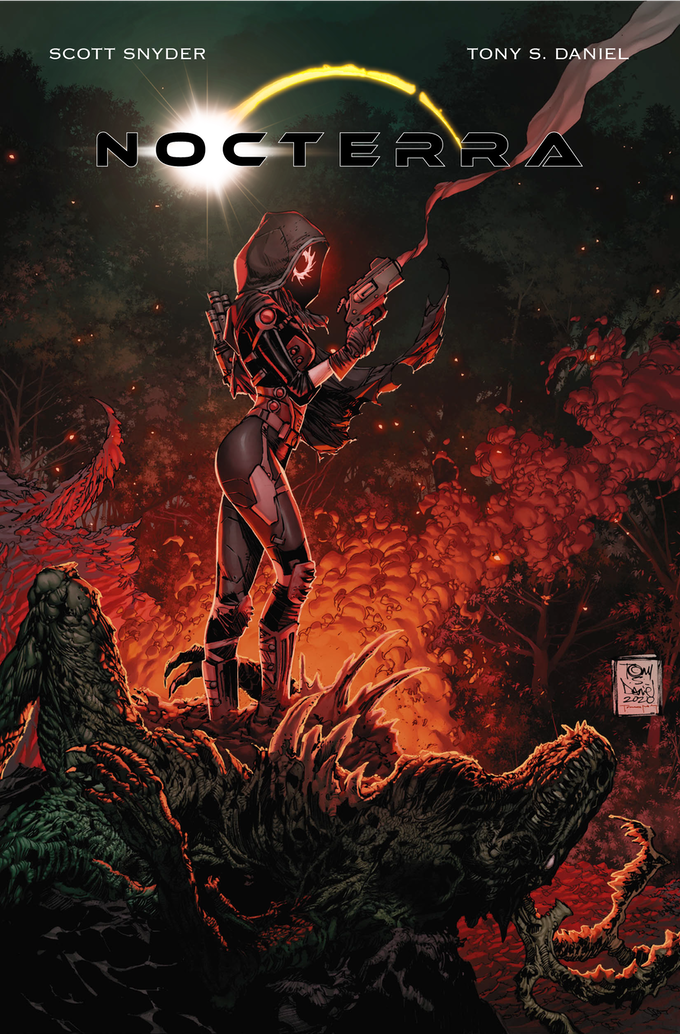Should major publishers & creators be crowdfunding comics alongside independent and DIY creators?
Can the DIY system of crowdfunding mesh with the establishment? Looking into the growing use of crowdfunding by Boom!, Scott Snyder, and others

Crowdfunding in comics arose as a way for comic creators to fund comic projects that wouldn't necessarily fit within the traditional comic book publishing structure, but now more and more traditional comic book publishers (as well as A-list 'Big Two' publishing talent) have begun using Kickstarter, Indiegogo, and others to make their projects a reality.
For some, having established publishers and creators begin crowdfunding projects feels like the old guard horning in on territory for the next generation. But for others, it's a new distribution model - similar to the widespread adoption to the Direct Market, and later digital comics - whose time has come.
One of the most recent crowdfunding projects by a major establishment has been Boom! Studios' BRZRKR series - you know, the comic co-written (and kind of starring) Keanu Reeves. For Boom! co-founder/publisher Ross Richie, it's not about funding the project directly, but more about reaching a new audience, or an existing audience looking for a new way to buy these comic books.
"Kickstarter offers a 'set and forget' single-click solution where fans who have never been to a comic shop or never read a graphic novel can pre-order this trilogy of graphic novels and have it delivered directly to their door," Richie tells Newsarama.
"This gets more people to read comics and the comic creators financially participate in the Kickstarter, so the more successful it is the more Matt Kindt, Ron Garney, and Bill Crabtree benefit," he continues. "Keanu has been very excited about recruiting more people to read comics. It's a medium he has a real appreciation for. When we decided we were going to collaborate on the project, the first thing he said was, 'And we'll get Rafael Grampá to do the cover!'"

Comic book store owner Jen King sees Boom!'s Kickstarter strategy for BZRKR being complementary, not competition, for her store, Space Cadets Collection in Oak Ridge, North Texas.
"The way that Boom! is doing their Kickstarter, for example, is how it would work well," King says. "The single issues are going to the shops first and exclusively. It then acts as an extra reason for fans of the Kickstarter to search out local comic shops to get those issues."
Comic deals, prizes and latest news
Get the best comic news, insights, opinions, analysis and more!
Former Kickstarter comic book outreach lead Camilla Zhang believes there's a space for big companies to join Kickstarter, while still respecting the homegrown community.
"One way is to shout out other Kickstarter campaigns that they really like or want to support," Zhang tells Newsarama. " And I think that imbuing your own campaign with a kind of fan engagement element is also another way to just really try to connect with your community. Some campaigns do this better than others, I will say."
Zhang says that Boom!'s current Kickstarter campaign for BRZKR is "ruffling feathers" among the crowdfunding space due to its treatment of the community.
"I know there's a lot of buzz out there right now about Boom! - likening it to Archie Comics' failed campaign a couple of years ago," she says. "Boom! is doing very fine for themselves right now, but they don't have a great reputation when it comes to paying creators specifically – BiPOC, queer, and trans creators.
"But another thing is that if you read their campaign page it really doesn't have the community in mind. There's no sense of gratitude or humility in that campaign, which is fine. If that's the route they want to go, that's the route they can go, that's their choice. But they don't seem particularly concerned with ruffling feathers because they're doing very well."
The groundswell for crowdfunding for many has been about the engagement between the project and those funding - at its base is a business/customer relationship, but Zhang argues many backers "are coming in on the ground floor so that they can feel like a part of something, like a part of the creative process."
"One of the things is that a lot of these publishers see Kickstarter as just a pre-ordering platform and nothing more," Zhang says. "And if you treat Kickstarter like a pre-ordering platform, it doesn't always work in your favor. One of the reasons why Archie, in my opinion, failed is because they really didn't understand how to treat backers."

Zhang is currently working as a crowdfunding expert for the comic book series Nocterra by Scott Snyder and Tony S. Daniel - a 2021 Image Comics series that is offering a pre-release, expanded edition of the first issue exclusively on Kickstarter. It's not likely he needed crowdfunding money to get a series off the ground at this point; for him, it's almost exclusively about the community - especially without convention and that interaction with fans for the past seven months.
"It's incredibly exciting for me and other creators because it allows this immediacy and direct connectivity to fans," Snyder says. "I kept hearing of this relationship with backers that are fluid and organic. You get to do Q and A's with them. You listen to their comments and you adjust the campaign to fit. That collaborative relationship is something that I feel like I enjoyed and the people I've worked with in particular - the people I gravitate towards really love about comics in general. There's such an immediate back and forth between fans and creators. You're all part of telling a story together."
At press time, Nocterra is in the final hours of its month-long Kickstarter campaign, having raised over $200,000 - much, much more than its $40,000 goal. Between that and the fan engagement, it's been a win-win for Snyder.
"I would definitely do a Kickstarter in the future, but the campaign alone has really funded beyond what I had hoped," the writer explains. "So, we're good to be able to get this book going and have five, six issues in the can, which is when you start to see returns."
Snyder is, of course, following in the footsteps of many comics creators who've used crowdfunding before - including some like him who made their names at Marvel and DC.

Writer Jimmy Palmiotti has been using Kickstarter regularly for the past six years, for backing creator-owned projects as well as finding comics to support as a fan.
"I promote others' Kickstarters daily and support the ones that I am interested in. I have backed over 180 Kickstarters that have been successfully funded," Palmiotti tells Newsarama. "A personal rule for me is that I am reluctant to back any creator using the platform that has not backed others' campaigns. That's just me."
That idea of supporting the community is something Boom! Says they will begin doing, as part of a learning process going in.
"Now that we've launched, we will be actively backing other comic book projects running campaigns on Kickstarter and will be cross-promoting those in our updates to pre-order customers of the BRZRKR campaign," Boom!'s president of publishing & marketing Filip Sablik says. "We hope that the publicity we have done for the BRZRKR Kickstarter campaign has drawn some new eyeballs to Kickstarter as a platform and distribution channels.
"One of Kickstarter's great built-in features is that when you go to a campaign page, there are additional recommendations for similar projects running active campaigns at the bottom of the page. The last time I looked, the BRZRKR page had a mix of comic projects recommended from both established and emerging talent."
Longtime independent cartoonist/publisher C. Spike Trotman has made a name for herself and her company, Iron Circus Comics, but finding tremendous success on Kickstarter for her comic books and graphic novels. She frames the traditional Kickstarter scene as "a strongly DIY, independent alternative press," which puts "a much more significant burden on modern-day publishers to prove their worthiness to prospective creators."
"You have to, as a publisher, make it clear you can grant access to markets and opportunities independent creators don’t have easy access to," Trotman continues. "That’s what I try to do, anyway."
For a retailer like King, however, she feels the divide is more pronounced.
"For big companies, I feel it's a little odd for them to use that platform to launch something," King tells Newsarama. "In the past, it was for people who could not self-fund their printing. That shouldn't be the case for the Big Two, I wouldn't think."
Trotman sees most complaints about bigger publishers using Kickstarter as "gatekeeping grumbling," and that "a rising tide raises all ships."
"If famous people or huge companies want to use Kickstarter, that’s not a problem to me; That’s maybe 1000, or even 10,000, people who have never used Kickstarter before registering an account and investigating a site that’s brand-new to them," Trotman says. "A lot of those people will stick around, and back more than one project. And it’s Keanu Reeves, or Shenmue 3, or The Smithsonian, or whoever that brought them here in the first place."
"And actually, come to think of it, I’m pretty sure that the first time something like that happened, that a big-deal Hollywood type launched a project?," she continues. "Kickstarter actually compiled data about the backers, and proved, with hard numbers, that a lot of those people went on to back other projects."
Snyder tells Newsarama he is "very sensitive" to this perspective for crowdfunding, and it led him to avoid using it in previous projects for years. But as the platform has grown to encompass and accept more projects from established companies and creators, he felt there was room for his work without detracting from emerging creators.
"I think now what we've seen in the last year between major creators coming over, publishers coming over, that there's room for people of all varied projects, one doesn't detract from another."
[Editor's Note: An earlier version of this article incorrectly attributes some quotes to C. Spike Trotman in error. We apologize for the error.]
Kat has been working in the comic book industry as a critic for over a decade with her YouTube channel, Comic Uno. She’s been writing for Newsarama since 2017 and also currently writes for DC Comics’ DC Universe - bylines include IGN, Fandom, and TV Guide. She writes her own comics with her titles Like Father, Like Daughter and They Call Her…The Dancer. Calamia has a Bachelor’s degree in Communications and minor in Journalism through Marymount Manhattan and a MFA in Writing and Producing Television from LIU Brooklyn.



